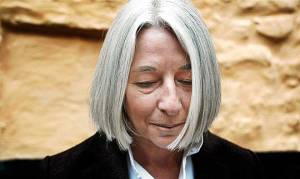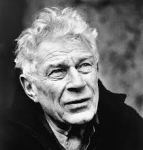One would be forgiven for thinking that the famously traumatic 2016 also claimed BWISP – my last post was in November 2015. But although my silence was in part due to a breast cancer diagnosis in June, I received the All Clear two days before Christmas, and attended a New Year’s Eve party full of Palestinian rights activists, so rest assured 2016 didn’t have things all its own way: both I and the organisation are still kicking. Though perhaps there won’t be the need to leap into action: as I said at the party, it looks like BWISP has been so effective that either Israel hasn’t dared to offer another British writer a prize, or no British writer has wished to accept one!
Joking aside, my illness, which followed a period of travel in the spring, sadly meant that I did not post a timely tribute to one of our most renowned members, Jenny Diski, whose public journey with cancer ended in her death on April 28th. Diski hated being called a ‘fighter’ of cancer – and even ‘journeyer’ probably made her wince – but she did not shy away from political conflict: as one of the 94 signatories to John Berger’s Dec 2006 letter to The Guardian, she joined the first international roll-call of supporters of the Palestinian Academic and Cultural Boycott of Israel (PACBI), driving her legendary acumen straight into the mast of the Palestinian cause – and into the side of Zionism. Later she emailed support to BWISP in its early days. We never met, but also exchanged Tweets on the subject of fish and chips: a Jewish import to the East End, I had read. She replied: “We had cold fried fish on Fridays. & the Nautalus in NW6 serves fish battered with matzo meal. Gefilte fish never caught on tho”. I will be adding In Gratitude, Diski’s cancer memoir, to my growing collection of the genre, and now I’m recovering, I’ll make a trip to the Nautalus in her honour.
Diski’s loss is still keenly felt, and the death of BWISP ‘patron saint’ John Berger on January 2nd, felt like 2016’s final vicious swipe at the common good. Berger was a literary and political gentle giant, a man who combined an undimmed sense of wonder with moral leadership all the more persuasive for his playful nature. Like Diski’s, Berger’s death is summoning tributes from the most august journals; like hers too, few if any of these literary obituaries mention his deep commitment to the academic and cultural boycott. Yet, as the heartfelt tribute from PACBI makes clear, Berger was first among the ‘first responders’ to the boycott call and, as as author of the 2006 letter to The Guardian, was instrumental in ensuring the campaign gained traction amongst writers and artists. He too lent BWISP personal support, lending his name and telephoning me from France to discuss strategy. In particular he wanted to ensure that I was clear on his position: that the boycott did not apply to brave Israeli dissidents – or indeed to any Israeli as an individual. The conversation made me even keener later on to participate in ‘Redrawing the Maps’, the 2012 London celebration of Berger’s 86th birthday, for which I organised the event ‘Letter(s) To Gaza’, encouraging members of the public to write to people in the besieged strip. The panel included Palestinians from the West Bank and Gaza – two young men who, as one commented, could never have met in their homeland, travel between the two territories being forbidden by Israel. Although himself absent, Berger occasioned this joyful reunion – just as his work will continue to generate fruitful encounters now he himself is gone.
With what I came to learn was his characteristic generosity, Berger also took a kind interest in my poetry, yet another genre of literature he breathed like mountain air. His Collected Poems (Smokestack Books, 2014) is dedicated to his late wife Beverly, ‘mistress of each page’, who also deserves our great respect and gratitude. Fondly remembered here by a high school friend for her impeccable taste in protest music, as the recent BBC documentary in honour of John’s ninetieth birthday makes clear, Beverly was not just simply Muse, but amanuensis. A librarian by profession, she gave John a vast amount of practical support, from typing his manuscripts to handling his voluminous correspondence. As a recipient of emails from her I know he could not possibly have accomplished all he did without her help.
Upon hearing the news of John Berger’s death I summoned to mind one of my favorite lines of his poetry: ‘The tongue / is the spine’s first leaf”. This image, to me, expresses the intrinsic relationship between voice and courage that John embodied. The line became an epigraph of a poem in his memory this week, published today by International Times. Here at BWISP I will leave you with John’s own words, his personal message to the signatories of the 2006 letter to The Guardian in support of PACBI:

